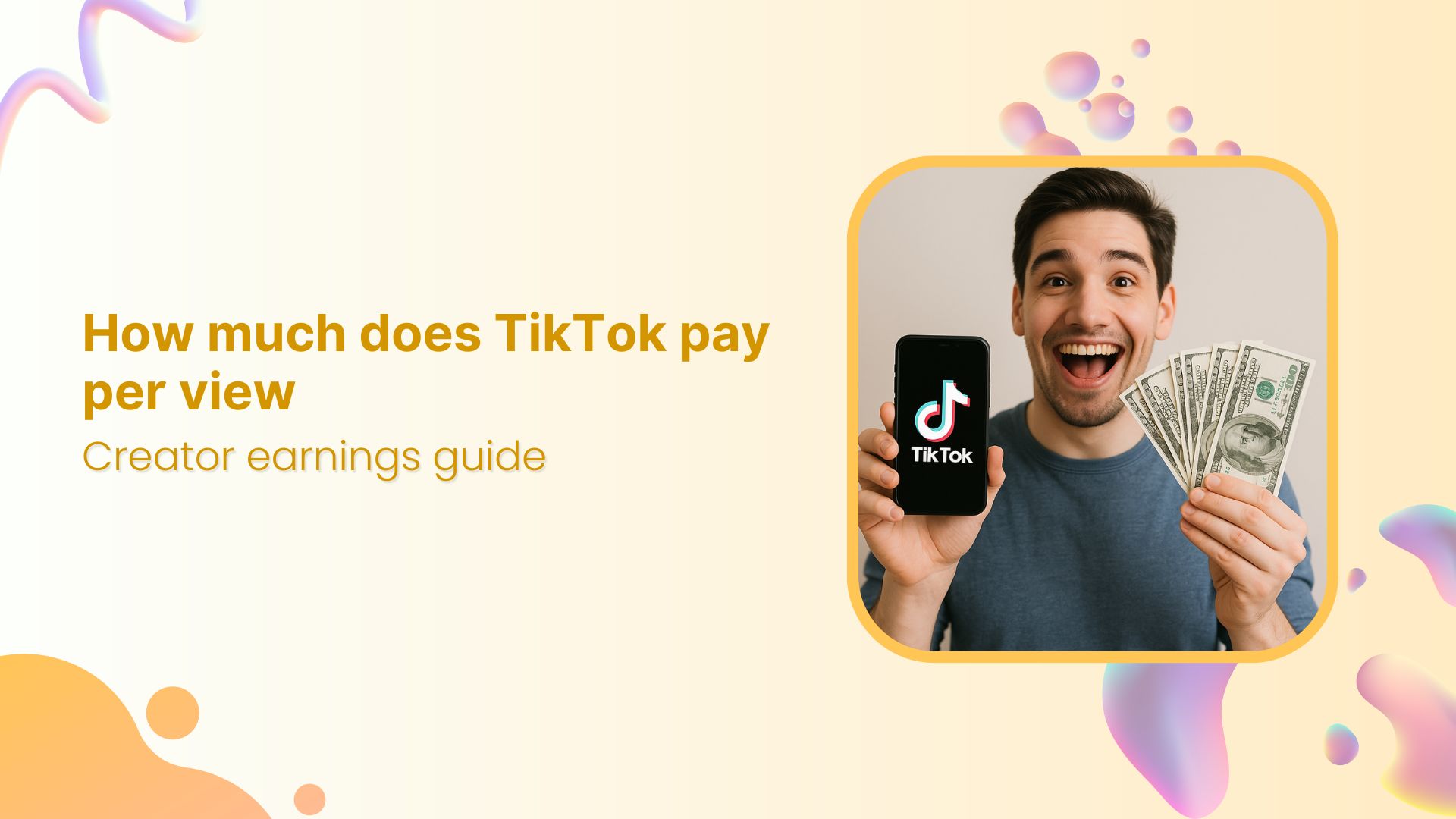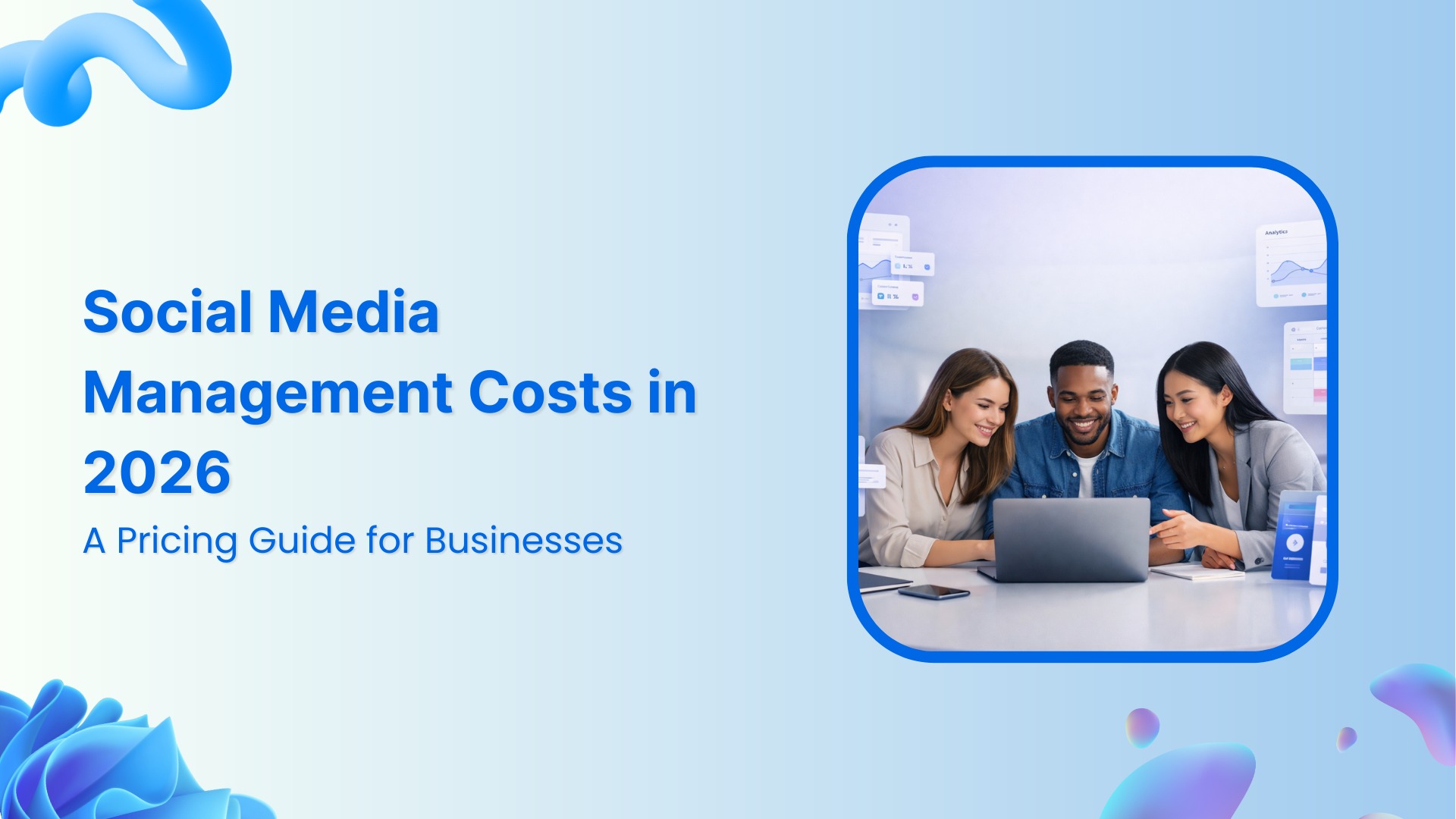Bulk-generate & schedule posts in seconds with Smart Scheduling. Try now!
How To Build a Facebook Community For SAAS Business?

Facebook is inarguably the number one social media network for both personal and professional use – it’s a no-brainer.
However, it doesn’t mean we’re undermining Twitter, LinkedIn, Instagram, and YouTube. All these top-tier social media networks are crucial to incorporate in your social media marketing.
When it comes to building a community of fans or customers, Facebook becomes an obvious choice for most influencers and companies – and a SAAS business is no exception. If you are a marketer associated with a SaaS company, you cannot possibly notch up your performance without using Facebook for SaaS Marketing.
We at ContentStudio pay close attention to building and harbouring our Facebook community.
I want to shed some light on building a Facebook community for a SAAS business, so that founders, entrepreneurs, and investors reading this blog post can leverage their Facebook existence.
According to Facebook, more than 1.8 billion people use Facebook Groups every month, i.e. at least 1/7th of the world population uses the Facebook group feature on the planet – this is nuts.
If you’re wondering why this piece of data is relevant here, let me elaborate on this. Facebook groups are one of the best tools to build, nurture, and grow a community on social media.
I’ll dive deep into the topic and share how you can build a thriving Facebook community around your SAAS Company.
All I want is to make sure that you know the key ingredients of building a community.
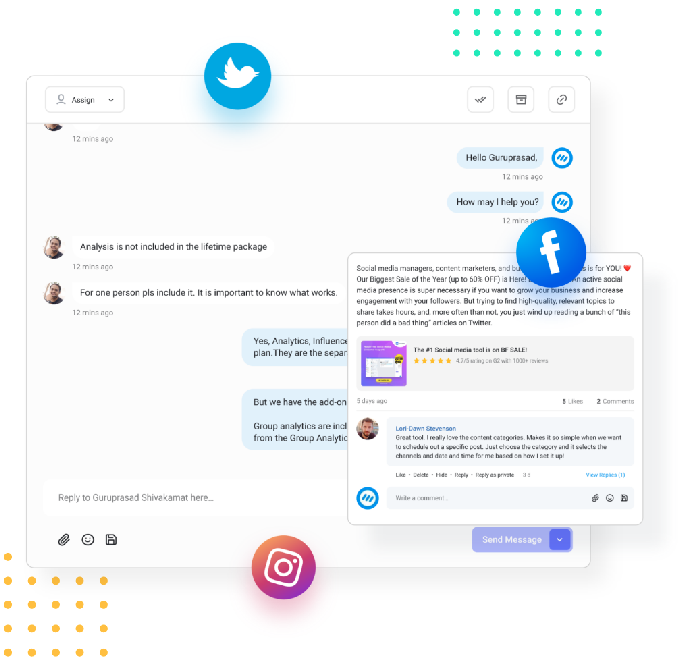
Master Social Customer Care and Support
Manage your brand’s social presence by monitoring and managing incoming messages and comments across your social networks.
14 days free trial - no credit card requiredEssentials of a Powerful Online Community
Here are five essential elements of building a powerful online community:
1. Empathy
A group of people becomes a community when they look out for each other and go through every thick and thin together. The same principle applies to the Facebook community.
Being empathetic doesn’t mean you have to do something out-of-the-box, but instead, stay active, answer questions politely, and try to make a difference in others’ lives.
2. Accessibility
An empowered community is a group of people where everyone has access to the resources, information, and benefits. The accessibility for all is what makes a community thrives.
3. Engagement
Engagement means interaction among the members. It’s the fundamental element that drives the community in the right direction.
When conversations are happening, ideas are being exchanged, solutions are being shared, and friendships are being developed, it’s a sign of community building.
4. Relevance
The relevance is what keeps a community connected and moving forward. If there are constant off-topic or unnecessary discussions are happening in any online community, it would put members off. And, they might stop paying attention to the group discussions.
5. Common goal
One of the crucial elements of building a strong online community is to have a common goal in mind. When there is no agenda behind establishing a community, there is no enthusiasm and passion for the future.
Therefore, it’s also necessary to invite people who have similar goals as you.
So these were the essential elements of building a powerful community.
We take a lot of pride in building and managing our Facebook group. And we’d like to share with you why it’s important to have a Facebook community.
Plus, how you can go about building your Facebook community around your SAAS business.
ContentStudio userbase isn’t limited to just social media experts and small businesses, in fact, our clientele includes startup founders, entrepreneurs, investors, e-commerce businesses, and SAAS companies.
Therefore, we owe it to our audience to talk about building, harbouring, and growing a Facebook community.
Without any further ado, let’s get right into it.
Why is Community Building Important for a SAAS business?
Before we dig deeper into the specifics of community building for SAAS business, you should know that online marketing has evolved.
Businesses aren’t just focused on putting banner ads or search ads anymore, but instead, they know the significance of putting out valuable content and engaging the audience through that content. It’s also called content marketing.
Similarly, community building is also a pillar of today’s online marketing. Harbouring a community of prospective customers, existing customers, and loyal fans online is the way to go.
Therefore, every business needs to go one step further in their marketing efforts and think beyond search ads, cold emails, and banner advertisements.
Facebook groups feature comes in handy in this situation. It provides a set of tools to build, manage, and grow a Facebook community of fans and customers.
Building a community on a social media platform like Facebook is crucial to brands’ marketing.
You might wonder why not use Facebook pages instead. The reason Facebook groups are a better option is two-fold:
-
-
- Organic reach: Facebook pages don’t have the same organic reach as they had back in the days. Facebook groups, however, are far better when it comes to organically reaching out to the members.
- Community tools: Let’s be honest about the Facebook pages; they weren’t designed to build and establish communities. They were typical fan pages for celebs, influencers, and brands.
-
Facebook groups, on the other hand, have all the essentials of building and growing a community of people with common interests or goals.
Let’s cut to the chase.

Build Trust with Curated Content
Discover, brand, and share the best content with your audience. Establish yourself as an authority and turn leads into loyal customers.
14 days free trial - no credit card requiredHow to Use Facebook for Building a SAAS Community
Before we dig deeper into the steps of building a Facebook community, it’s important to give you a perspective on how to use Facebook for SAAS community building.
An average user who signs up on Facebook connects with friends, scroll through the timeline, shares interesting content, and leaves the platform. That’s how the majority of Facebook users use the platform.
However, when the bid is to build a SAAS community, it means you need to maximize your social media efforts to move the needle in your business. That’s where the perspective of using a social media platform changes.
Here’s how you can use Facebook when establishing a SAAS community:
1. Become active on your Facebook profile
When you have a bigger goal in mind, such as building a SAAS community, your actions must match your ambition. You shouldn’t be using Facebook for sharing funny cat videos or memes all day. Instead, you should be discussing industry-related topics, ideas, and thoughts.
It doesn’t always come down to a Facebook group or Facebook page for engaging people or bringing them under a single umbrella. You could start things off through your Facebook profile too. Once things start to take off, you could hop on the Facebook groups option and further build your community through it.
2. Launch a branded Facebook page
There is no harm in launching a Facebook page for your brand or SAAS company. A lot of companies make their Facebook pages just to register their name on the Facebook pages section. They hardly engage with the audience on Facebook pages. And, rightly so as Facebook groups are a more viable option.
As far as launching a Facebook page is concerned, it’s more like hoisting a flag on a piece of land you just got. What you can do instead is develop a building and then hoist a flag at the top. That analogy would make more sense to you if you knew about the declining organic growth of Facebook pages.
Many social media experts, entrepreneurs, and companies try to establish Facebook groups instead of Facebook pages. Most companies use Facebook pages just to capture real estate, but they build communities using Facebook groups.
3. Start a Facebook group
A lot of people have around 5,000 friends on Facebook, and they have a lot of engagement on every post. Similarly, some companies a huge followers base on their Facebook pages, and they get a lot of traction there.
There is no right or wrong way to build a Facebook community. However, the Facebook group is the most popular method of building a social media community. When it comes to establishing a Facebook community, the Facebook group seems like an obvious choice.
Related Read: Best Time to Post on Facebook
Now we’ll explain how you can set up a Facebook community for your SAAS business.
A Step-by-Step Guide on Building a Facebook Community For a SAAS Business
When it comes to building a Facebook community for a SAAS business, there is no better way of doing it than creating a Facebook group. However, most of you might not have any clue on how to go about starting a Facebook community.
That’s where we come in. Without any further ado, let’s get into the steps of building a Facebook community for your SAAS business:
1. Setup a Facebook group
Since the Facebook group is the best choice for creating a community on Facebook, we’ll opt for it to set up our Facebook community.
Don’t worry if you haven’t had a chance to create a Facebook group before. We’ll walk you through the process.
It’s not rocket science to create a Facebook group. All you need is to go to the “Groups” section on the left side of the navigation on Facebook.
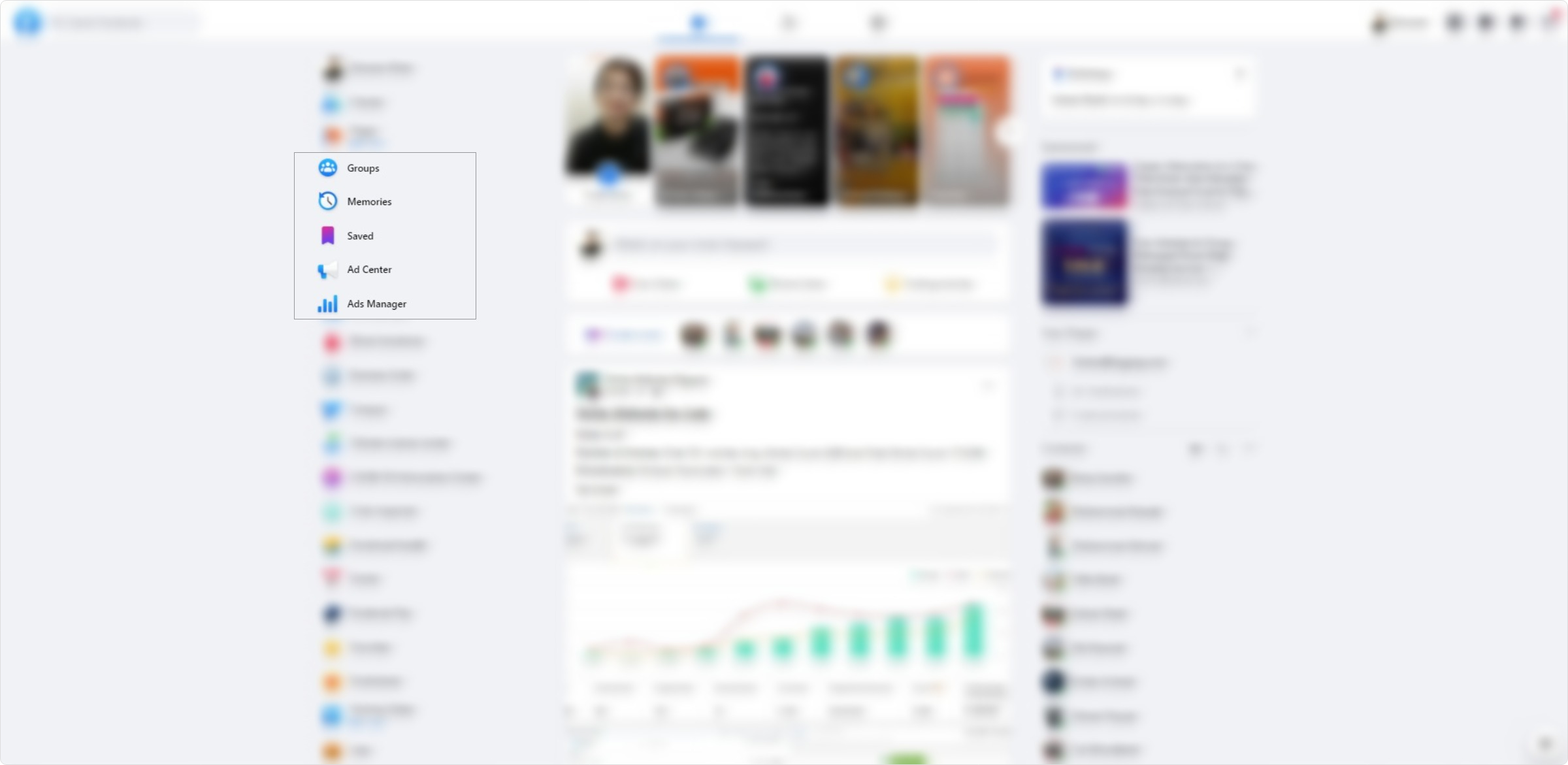
Once the page is opened, click on the “create new group” to start the Facebook group setup process.

Here comes the part where you have to write the group’s name, choose the group type, and invite friends (but it’s optional).
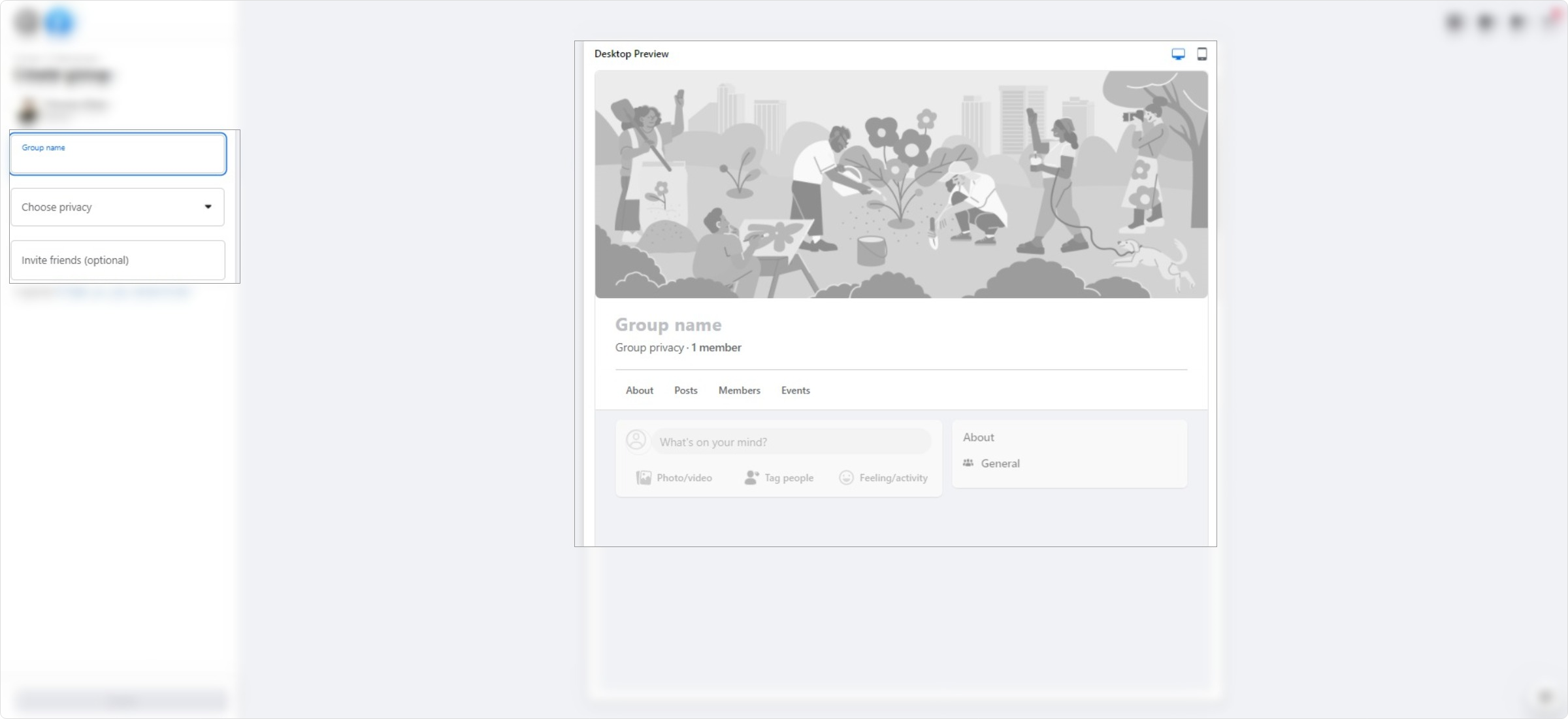
Besides all those basics, four elements could make or break your effort of setting up a Facebook community. I might be exaggerating this, but the mentioned-below elements are quite important for starting a successful Facebook group:
-
-
- Name: Your Facebook group should have a unique, interesting, and innovative name. It must feel that this is a legit Facebook community. If you’re a brand or website, it must include the business name that the audience could easily find on Facebook.
- Group type: The Facebook group type is a rather important step in the process. You can go with a public or private group type. Usually, brands and SAAS companies opt for private group types; they use this thing as a filter to skim through the spammers and restrain them from spoiling the Facebook community experience for other members.
- Branding: Branding means the aesthetic side of the Facebook group. Try to come up with a fantastic Facebook group cover, so that it looks appealing to the prospective audience. You can create one using Canva or Crello.
- Colour scheme: There is not much real estate to fashion colour scheme, but you could apply your branded colours or design to the Facebook group cover.
-
Setting up a Facebook group is quite easy. Anyone can create a Facebook group. However, only a handful of people can take it to the next level. Making a successful Facebook community isn’t everyone’s cup of tea.
2. Invite your user base
There are no hard and fast rules for inviting your user base to your Facebook community.
Facebook groups do have a feature to include people in your Facebook group, but it’s not how professionals bring the audience to their communities. The reason is that when you add people to your Facebook group, you don’t have their consent to add them.
What you can do instead is invite them to join your Facebook community. This way, you’re giving them a choice to either accept the invitation or reject it.
You might wonder who would you invite or how you would invite your existing user base. Well, we’ve got you covered.
Here are the four simplest ways to invite your user base to your Facebook community:
1. Email newsletter
SAAS companies often send out email newsletters about product updates or discounts. You can use this email communication channel for growing your Facebook community.
Start with inviting your email list to your Facebook community. Shoot an email list with a link to your Facebook group as well as a little bit of explanation on why they should join your Facebook group.
Ben from Keyword Chef knows this strategy and using it for a while. Take a look at one of his email newsletters:
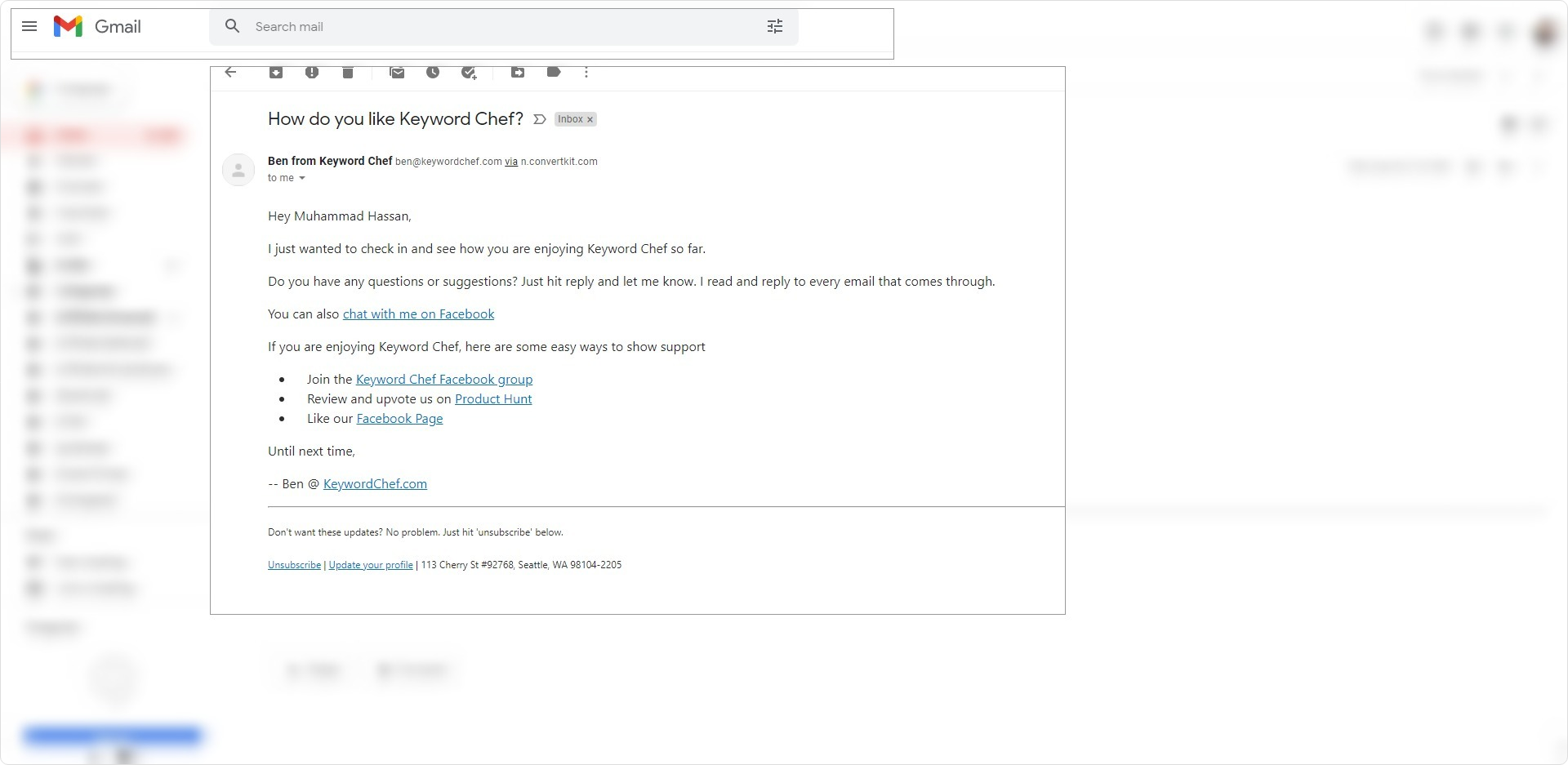
The email list usually consists of loyal fans or customers that want to hear from your brand. So most of them are likely to accept your invitation and join the Facebook group.
2. Twitter bio
Tweeting with the Facebook group isn’t enough. So try adding the Facebook group link to your bio with a two-line brief on the Facebook group.
Here’s an example:
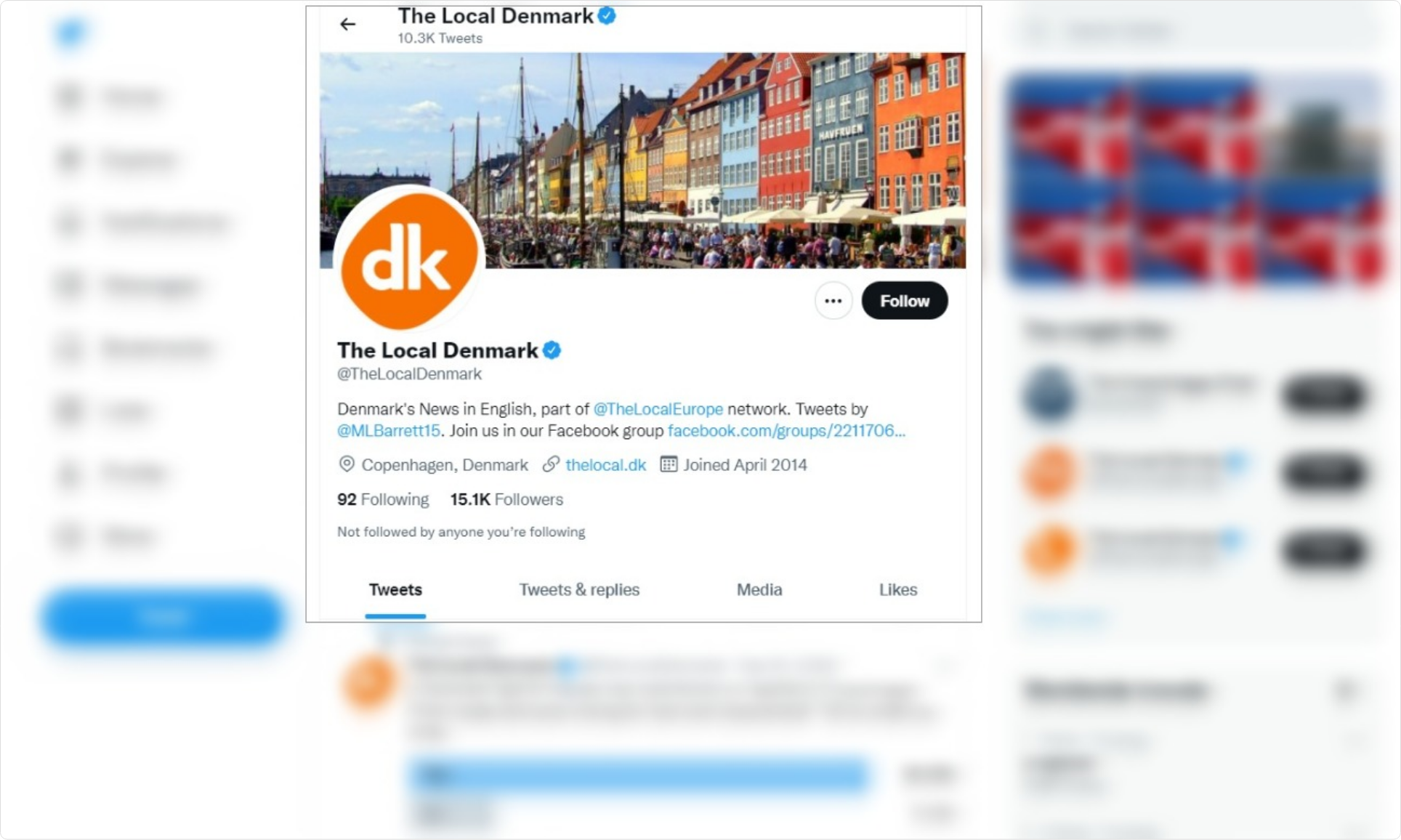
The Local Denmark is an English newspaper based in Copenhagen, Denmark. They’ve mentioned their Facebook group’s link in the Twitter bio.
3. YouTube description
Use your video descriptions to distribute the Facebook group link. Furthermore, mention your Facebook community from time to time in the videos and redirect people to the description for the link.
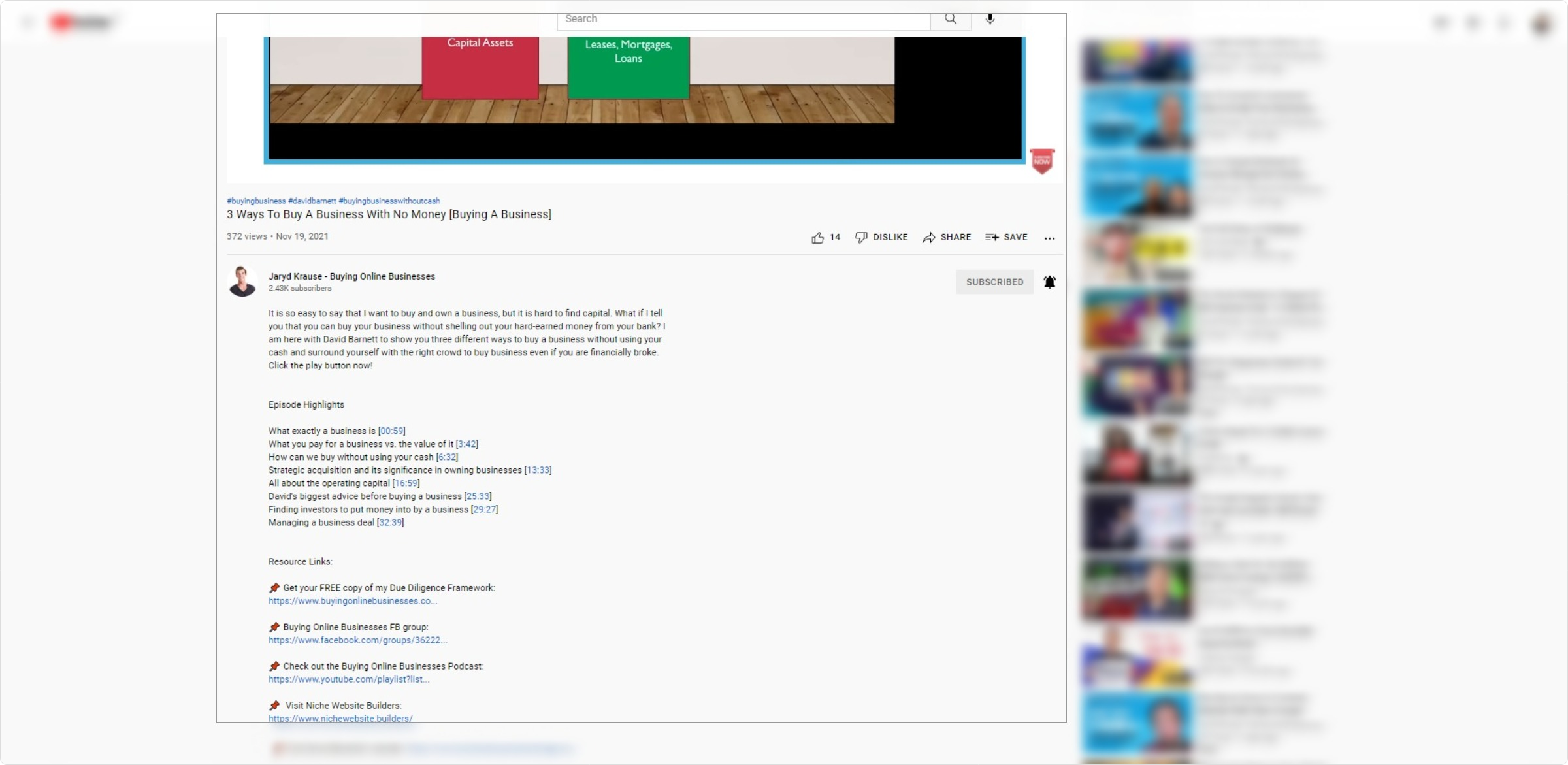
Jaryd Krause from Buying Online Businesses has his Facebook group’s link in the YouTube video descriptions just like hundreds of thousands of entrepreneurs.
4. Banner ad
Put a banner ad on the blog or website so that people could click on it and land on your Facebook group. They may have to log in to their Facebook account to check out the group, which isn’t a problem.
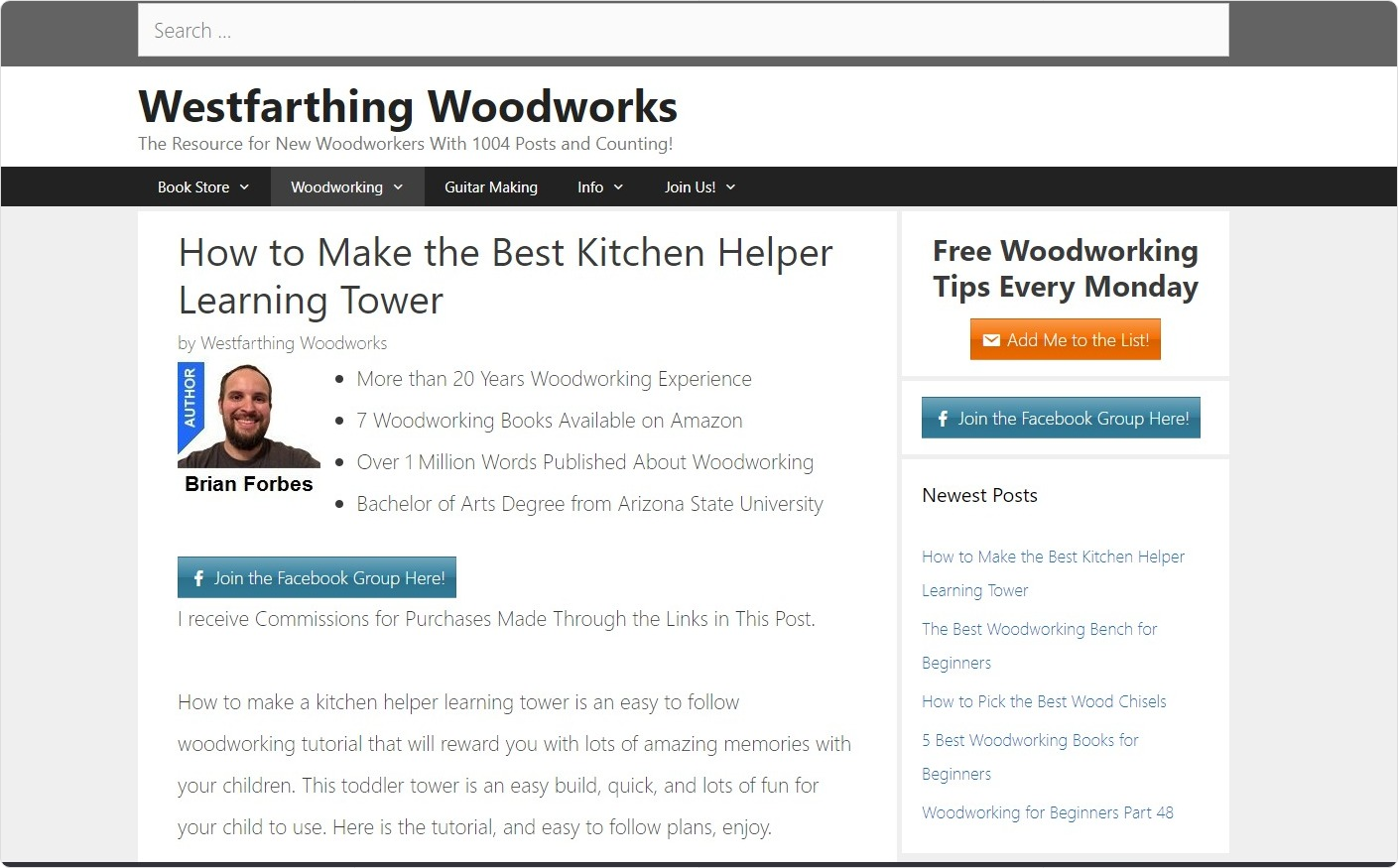
The guy at Westfarthing WoodWorks knows the importance of putting a banner ad that redirects visitors to the Facebook group.
Don’t shy away from using other social media platforms such as LinkedIn, Instagram, Pinterest, and TikTok to invite people to your Facebook community, especially if you have followers on those platforms.
3. Choose the group moderators
The appointment of Facebook group moderators is an essential step in the Facebook community-building process. The reason why moderators are a must is that it’s hard for the brand executives or social media managers to keep up with every aspect of customer support.
You might wonder how to find those Facebook group moderators or how to appoint them in the Facebook group. Well, let us explain how it works: all you need is to keep an eye on the discussions.
Identify the most active members:
The most engaging and active members are the ones who could be your moderators. They might be your loyal fans or die-hard customers.
Contact them for the role:
Once you identify the most active yet effective community members in the Facebook group, send them DMs and ask them whether or not they’re interested in the community moderation.
Most of these active group members are likely to say “yes” to the offer. Perhaps, they would feel obliged and honoured when you’d ask them to be a part of your moderation team.
Update member status:
Once you’re done with the selection of your moderators, go ahead with making it official. All you need is to go to your group settings and change those members’ status from member to moderator.
4. Build a SAAS content plan for the Facebook group
Once the Facebook community has been set up, one of the things you might want to pay close attention to is coming up with a SAAS content plan for the community.
You may think why someone would need a content plan for a Facebook group. If that thought crossed your mind, then let me remind you right off the bat that we’re discussing building a Facebook community from scratch.
Therefore, it’s essential to go step by step and cover everything that SAAS companies might potentially come across.
Had you established a Facebook group for your SAAS company two years ago, we wouldn’t have discussed a lot of basic stuff because you would have already gone through those steps.
In other words, if a Facebook community has been thriving for the past two years, there is no need to build a content plan for the group. The reason is that the community doesn’t need a direction after two years or so if started and managed properly.
Don’t stress too much about building a content plan. All you need is to promote your most active group members to the moderators and come up with a content plan.
Make it as simple as possible, for instance, you could make a spreadsheet and share it other the team so that everyone gets a chance to pitch in.
Bring your social media manager, content manager, group moderators, and digital marketer under the same umbrella. All of them could share topics, ideas, and questions for the Facebook community.
Once the Facebook community starts to get traction, you won’t need a plan content for the Facebook group because the community would run organically.
Try out Google Sheets or Airtable for creating a spreadsheet.
5. Connect with prospects and existing customers
When you’re establishing or managing any type of social media community, make a strong connection with the audience. You may have to go the extra mile, in the beginning, to help members out.
Sometimes, it’s hard to keep up with your Facebook group, but that’s what makes all the difference. Don’t wait for others to start a conversation. Instead, try to come with a question or share a useful tip to break the ice.
Schedule group content
ContentStudio comes in handy when you have to schedule posts and facebook stories across all major social media platforms such as Facebook, Twitter, LinkedIn, Pinterest, and Instagram. Don’t shy away from scheduling your posts for the Facebook group.
Be creative in engaging your audience
Sharing something useful or asking an enticing question gets eyeballs around and that’s your chance to connect with the audience.
Even though you’re building a Facebook community for your SAAS business, don’t always tie your discussions around your SAAS product or plug your SAAS company.
You might want to set the tone for the Facebook community because whatever standards you set from the beginning, it would become a part of the culture in your Facebook group.
As far as sharing useful tips and ideas without being greedy about sales and marketing, it starts to reflect in your business.
What happens is that when people start to notice that you’re genuinely helping them on social media, they pay close attention to you as a token of thanks.
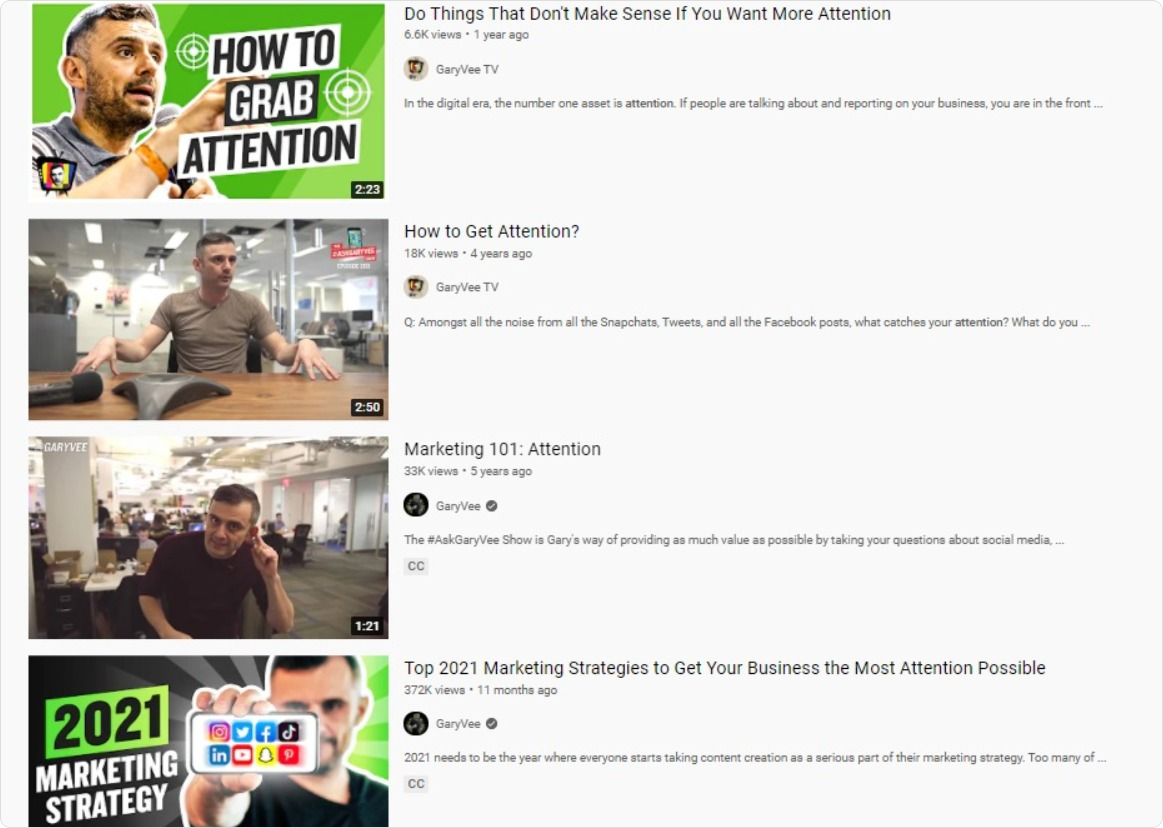
Gary Vaynerchuk often refers attention to the currency of this time. What he means is that whoever has the attention of the audience, has the channel to influence the masses.
So these were the steps you might want to take to build a Facebook community around your SAAS business.
Plus, it doesn’t end here because if you don’t know how to expand your Facebook community, it won’t grow.
Therefore, we have a few tips on growing a Facebook community.
Tips to accelerate the growth of Facebook SAAS Community
There are several measures that you can take once you have built a Facebook community. Let’s take a look at the tactics to apply for growing your SAAS community:
1. Driving the website visitors
A Facebook community doesn’t grow on a whim, but instead, it takes time, energy, and effort. You may want to use every opportunity at your disposal to bring people into your Facebook community.
The best way to get started with this is by putting a banner ad on your website or blog to drive websites visitors or blog readers to your Facebook group.
This way, every visitor who lands on your website would know that there is a Facebook group of this SAAS company and they could get on board with it.
The customers or loyal fans are likely to join the Facebook group of a SAAS company. Don’t be so hard on yourself if people aren’t clicking on your banner ad. Instead, try A/B testing with your banner by changing the design, size, and placement of the banner ad.
2. Using ice-breaker tactics
It’s necessary to keep an eye on the Facebook community. You don’t want pin-drop silence in the Facebook community.
Learn a few ice-breaker techniques to swoop in whenever necessary and get the conversations going.
Here are three things you can try out:
a) Ask questions: You can break the ice with a random question related to your industry. It doesn’t matter whether you’re a SAAS business owner or a moderator; it works either way.
b) Create a poll: You can create a poll now and then. Polls are engagement pullers because they don’t require a lot of work from the respondents. All they need is to read out the question and choose their favourite option from the answers. Voila!
c) Share a lesson: If you’re noticing there has been some silence in the Facebook group, you can always share a lesson you learned from something. Sharing an experience or a life lesson goes a long way.
Once things start rolling, you won’t have to worry much about breaking the ice through different tactics.
3. Constant influx of content
One of the best ways to grow any type of social media community is by putting out valuable content consistently – the Facebook group is no exception.
A constant influx of content doesn’t mean you keep sharing articles and videos from industry experts. Rather, create a mix of various things that keep the discussion part interesting.
If you keep on sharing articles or videos, it would start to look boring and mundane at some point. And, that’s what we don’t want. So be very careful with your content-sharing approach in the group.
What you may want is to mix it up; ask questions, create a poll, share a helpful video, or write a useful text post.
4. Engagement through comments and likes
Usually, you don’t have to worry about getting likes and comments. If you have the right audience in the community, they’d start to respond to the interesting content without an ask.
No doubt that comments and likes on Facebook bring engagement to the post, but you can’t push someone to like the posts or comments underneath the posts. All you can do is start doing these things yourself. It might have a ripple effect on other members.
Anyway, encourage fans, relevant friends, and co-workers to spend a few minutes every day in the Facebook group, which might start turning things around. Once you get the ball rolling, you don’t need any of these things.
5. Interlink your Facebook page and group
One of the Facebook growth hacks that applies to Facebook groups is that you can now link your Facebook page with your group and vice versa. Don’t let this opportunity slip off and connect your Facebook page and group right away.
6. Refer the audience to group threads
A great strategy of growing a Facebook community is by referring the audience to the Facebook group discussions by sharing the threads/URLs with them.
You can even link out to the discussion threads in your articles or share them in the YouTube video descriptions.
So these were a few top-notch Facebook community growth hacks.
When your SAAS Facebook community is just getting started, you may have to try out a bunch of growth tactics to see which ones help you the most.
Don’t get demotivated if you don’t see any breakthrough because social media success doesn’t happen overnight.
How would you build a Facebook Community around your SAAS business?
You’ve made it to the end of this article. It shows that you’re serious about setting up a Facebook community.
Most of the time, SAAS founders and entrepreneurs already have a lot on their plates. So they either delegate social media marketing strategy to the social media manager or they neglect social media marketing altogether.
Well, it’s not like every company out there is putting off their social media marketing. There are hundreds of thousands of companies that are crushing it with their social media marketing.
If you’re wondering why companies that understand social media marketing somehow want to build a community around prospects, customers, and loyal fans. The answer is that it’s relatively easier to convey a message and educate the audience if they want to learn from you or want to hear from you.
Therefore, building a community on the number one social media platform in the world is the way forward.
I shared the steps and essential ingredients of building and growing a Facebook community around your SAAS business.
Now it’s up to you what you grasp from this piece and apply it to your digital marketing campaign.
Before you leave this article, tell me something I want to know:
How would you build a Facebook community around your SAAS business?
Recommended for you


Powerful social media management software
14-day free trial - No credit card required.
